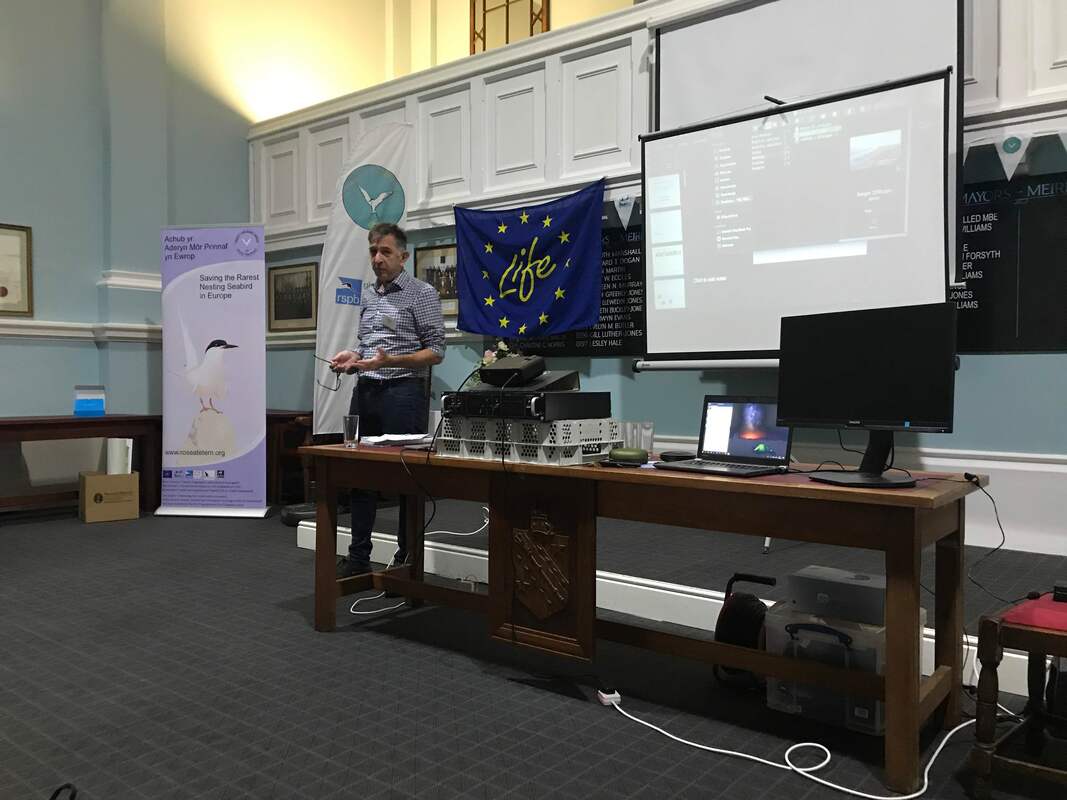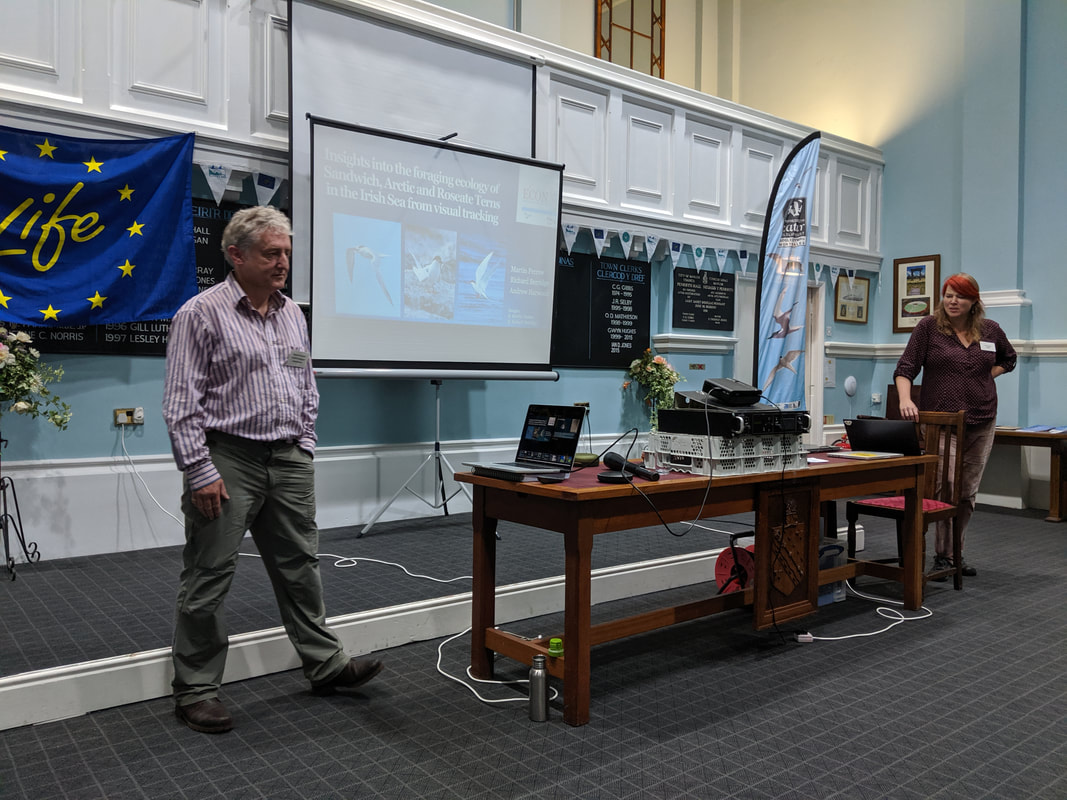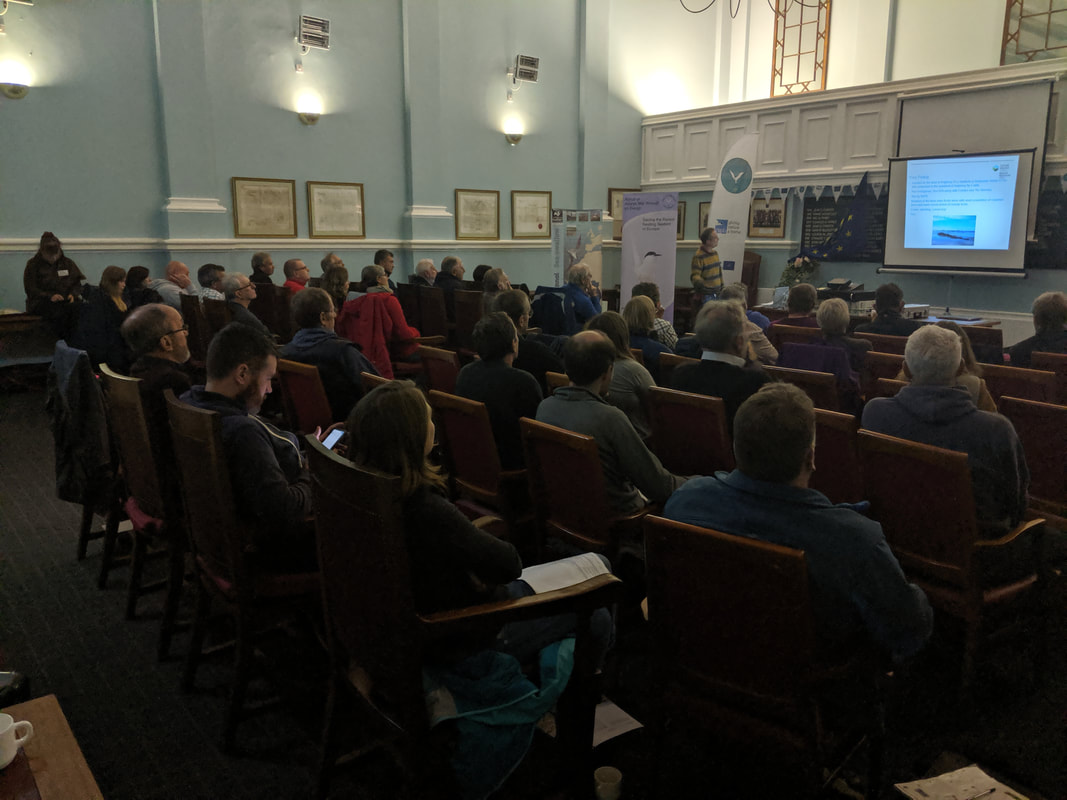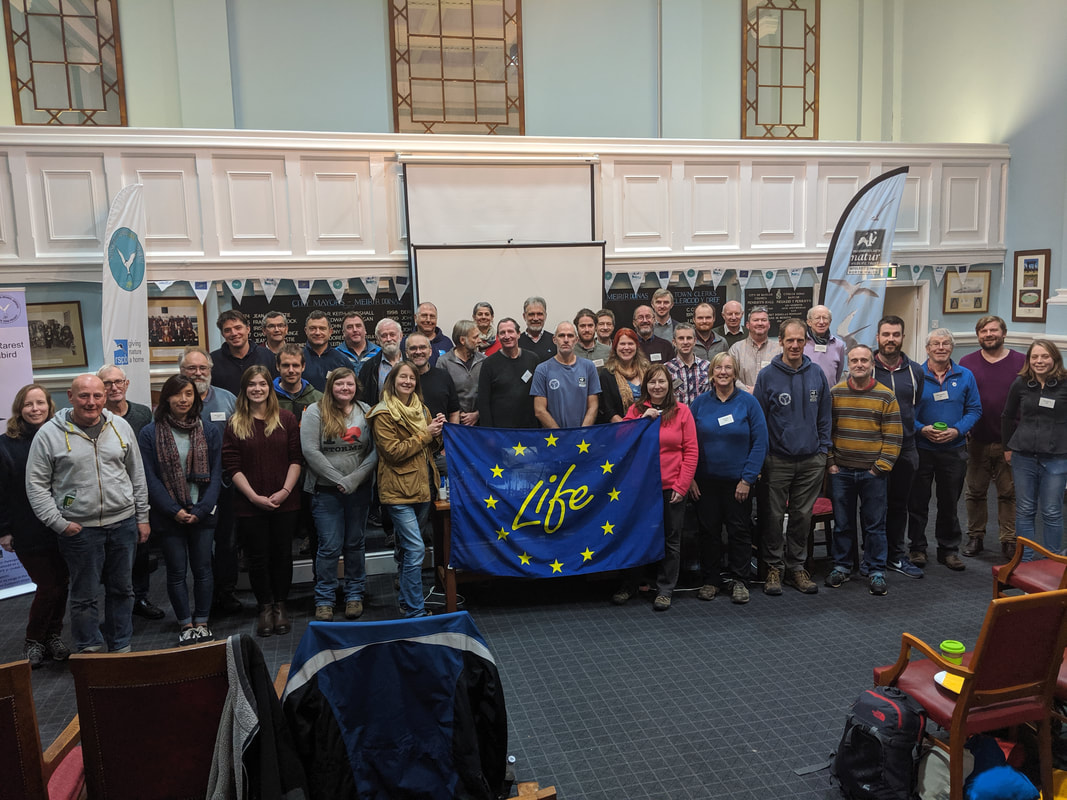|
The roseate tern conservation, research and policy practitioners from both sides of the Atlantic will meet to exchange experience and knowledge on key conservation issues concerning the species. The meeting will take place online using one of the webinar platforms on 24-25 February 2020. There will be two half a day sessions due to the time difference.
These exchanges are not new, in fact practitioners from both sides of the Atlantic used to meet annually as part of larger conferences in times when resources and carbon footprint were perhaps less of an issue. There have also been sporadic cross-Atlantic visits and other communication platforms such as the Roseate Tern Newsletter and West Atlantic Roseate Tern Recovery Meetings. Certainly, these exchanges have yielded positive results and ideas, such as nest boxes, which were first introduced from the US to Ireland, then to the UK and more recently to France. The agenda is being finalised and soon we will share more details, but we have identified several topics of interest, i.e. predation and biosecurity, habitat management/ creation, tracking at breeding colonies and during migration, population and diet monitoring, renewable energy and food resources. More details on registration and participation are here. More info: Daniel Piec: [email protected] for Europe including Azores, or Susi von Oettingen: [email protected] for the US, Canada and Caribbean.
0 Comments
The first-ever meeting of the Irish Sea Tern Network took place in Bangor on 17-18 October supported by the Roseate Tern LIFE Project. We had almost 50 participants from Northern Ireland, the Republic of Ireland, England, North Wales and the Isle of Man. This was a truly powerful networking event, with statutory agencies from all countries, NGOs, voluntary organisations and individuals attending. We convened in the spirit of collaboration based on growing evidence that the same birds use different sites within and between years all around the Irish Sea. It was therefore prudent to meet fellow site managers and experts to exchange experience in tackling similar issues such as predation control, habitat management and research and monitoring. We also gained an overview of all the colonies around the Irish Sea and discussed how the network could be utilised to improve collaboration. Graham White and Gavin Thomas from the RSPB gave an overview of the latest developments in terrestrial predator control and fencing solutions used by the organisation. Karen Varnham and Tessa Coledale talked about practical aspects of biosecurity monitoring on islands and presented the aspirations of the Biosecurity for LIFE Project. Jen Smart from the RSPB started the Avian Predation Session with a presentation on diversional feeding and a trial on effectiveness of agrilasers in deferring avian predators. Steve Newton (BirdWatch Ireland) and Ian Sims (RSPB) presented case studies from Rockabill, the Skerries and Ynys Feurig, followed by Chris Redfern from Natural History Society of Northumbria who provided results of the gull predation study from Coquet Island. Highly anticipated session on research and monitoring started with Martin Perrow (ECON) telling us about results of Sandwich, Arctic and roseate terns visual tracking around breeding colonies. We had also two excellent presentations from Henry Cook (North Wales Wildlife Trust) on post-breeding dispersal of Sandwich tern chicks around the Irish Sea and between colony movements of little terns presented by David Norman (Merseyside Ringing Group). Chris Redfern presented results of geolocator tracking of Arctic and roseate terns. Leigh Lock presented the results of the RSPB's Sustainable Shore study and opportunities for habitat creation through managed realignment and beneficial use of dredging. Daniel Piec provide more specific examples of habitat work undertaken as part of the LIFE project, followed by a Hodbarrow case study presented by Dave Blackledge (RSPB). The session finished with two presentations on artificial structures for common terns from Shotton and Preston Docks presented by Peter Coffey (Merseyside Ringing Group) and Paul Ellis (Fylde Bird Club) respectively. In the final session from before the discussion panel, Neil McColloch (NIEA), Steven Newton (BirdWatch), Matthew Murphy (NRW), Bart Donato (NE) and David Wright (DEFA, Isle of Man Government) presented overviews of tern colonies from their respective countries.
Although there was no appetite for formalising the network into a partnership, we identified a few areas of collaboration such as testing simple management interventions on multiple sites, continue colour-ringing and reading (especially to check where birds go after stochastic events) and look into potential impacts of offshore wind developments on forage fish. It was agreed that the next meeting will be in two years, most likely in Dublin. However, many participants will no doubt visit each other sites next year and come to the final LIFE project seminar in September.  Poetry Day from your Project Manager. Hope you will enjoy! Action Plan for Roseates Coming from tropical sphere Roseate terns were always rare Scattered across the British Isles In companion of common terns Ladies hats with Sea Swallow tail Obliterated the fragile friend Yet some ladies said no to pointless trend And stood up against the roseates end Short lived the joy of protection Most colonies declined beyond apprehension Was tern trapping responsible in Ghana? There were no clear clues from the dætə Rockabill, Lady’s Island Lake and Coquet These are the only population pockets Agencies and NGOs maintain the upward trend Is there a ceiling when this must to end? First, we need look what’s tonight dish Irish and North Seas are full of forage fish When sandeel becomes rare There is always sprat to spare Shelter must then be of high priority Especially in light of climate calamity Terraced boxes remove impermanence While wardens fight with the gull menace We now need to focus on potential expansion In the light of density dependent action Choose the best common tern colonies And work in partnership for their glories We know that Rockabill is the Coquet’s exit Birds from Ireland don’t mind Brexit Is there hope for transborder tactic? It depends on Boris’s funding DP, 8.10.2019 |
More Blogs to Read
AuthorThis blog is maintained by various people from the project team. Archives
August 2020
Categories
All
|
Roseate Tern LIFE Project is supported by the LIFE Programme of the European Union
LIFE14 NAT/UK/000394 ROSEATE TERN
LIFE14 NAT/UK/000394 ROSEATE TERN







 RSS Feed
RSS Feed